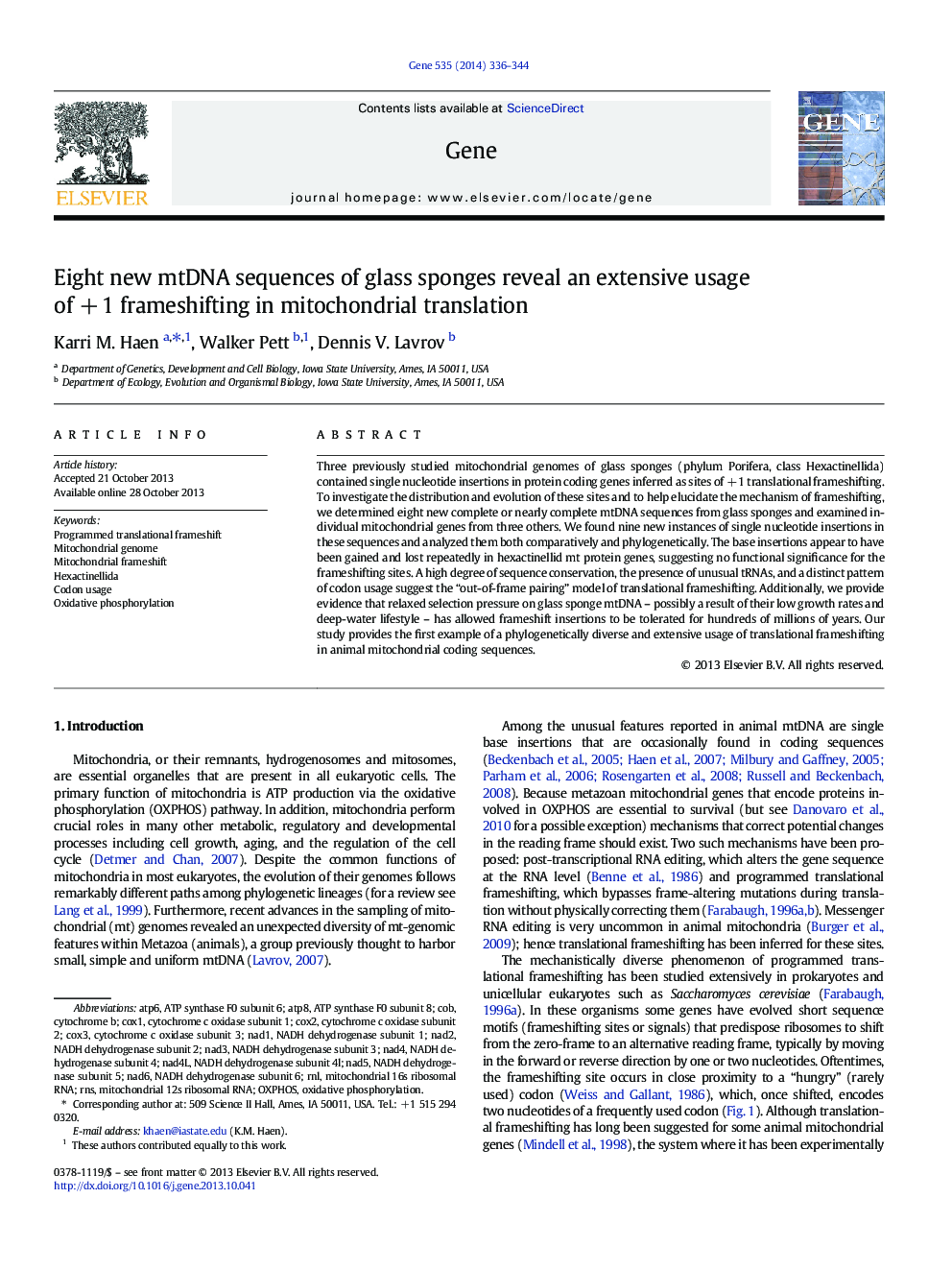| Article ID | Journal | Published Year | Pages | File Type |
|---|---|---|---|---|
| 5905967 | Gene | 2014 | 9 Pages |
Abstract
Three previously studied mitochondrial genomes of glass sponges (phylum Porifera, class Hexactinellida) contained single nucleotide insertions in protein coding genes inferred as sites of +Â 1 translational frameshifting. To investigate the distribution and evolution of these sites and to help elucidate the mechanism of frameshifting, we determined eight new complete or nearly complete mtDNA sequences from glass sponges and examined individual mitochondrial genes from three others. We found nine new instances of single nucleotide insertions in these sequences and analyzed them both comparatively and phylogenetically. The base insertions appear to have been gained and lost repeatedly in hexactinellid mt protein genes, suggesting no functional significance for the frameshifting sites. A high degree of sequence conservation, the presence of unusual tRNAs, and a distinct pattern of codon usage suggest the “out-of-frame pairing” model of translational frameshifting. Additionally, we provide evidence that relaxed selection pressure on glass sponge mtDNA - possibly a result of their low growth rates and deep-water lifestyle - has allowed frameshift insertions to be tolerated for hundreds of millions of years. Our study provides the first example of a phylogenetically diverse and extensive usage of translational frameshifting in animal mitochondrial coding sequences.
Keywords
atp8rnlcytochrome c oxidase subunit 2ATP synthase F0 subunit 8ATP synthase F0 subunit 6NADH dehydrogenase subunit 2NADH dehydrogenase subunit 1Nad5nad4Lnad4nad2nad1cox3atp6NADH dehydrogenase subunit 6NADH dehydrogenase subunit 5NADH dehydrogenase subunit 4nad3cox2COX1RNSOXPHOSCodon usageCytochrome C oxidase subunit 1Cytochrome bOxidative phosphorylationNADH dehydrogenase subunit 3HexactinellidaMitochondrial genomecob
Related Topics
Life Sciences
Biochemistry, Genetics and Molecular Biology
Genetics
Authors
Karri M. Haen, Walker Pett, Dennis V. Lavrov,
